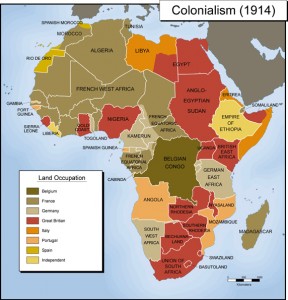Che Guevara was your stereotypical revolutionary. Raised in a rich household, he was trained to be a doctor before he realized his interests were helping the poor. The son of a leftist father, he grew up listening to socialist ideologies from Spanish Republicans. After allying with the Cubans Fidel and Raul Castro, he helped to liberate Cuba from Batista’s rule and gained political influence within Cuba society because of his role within the revolution. In 1964, he was sent to address the UN in regards to Africa and Caribbean decolonization. In his speech to the UN, Che builds the Cubans as a reactive nation as opposed to proactively provoking the United States and challenging their imperialist rule within Africa (indirectly) and more specifically the Caribbean. While Che states that the US’s military influence has helped to oppress many a person, their economic system dwarfs that of the socialist states and prevents any attempts at economic freedom for them and their citizens. “So long as the economically dependent peoples do not free themselves from the capitalist markets, and as a bloc with the socialist countries, impose new terms of trade between the exploited and the exploiters, there will be no sound economic development, and in certain cases there will be retrogression, in which the weak countries will fall under the political domination of imperialist and colonialists” (Blaisdell 273). Che believes that these economics will prevent the burgeoning socialist states from ever truly freeing themselves from imperialism and in turn prevent them from ever truly breaking free of capitalism. Without an equal power base, capitalism and socialism will never resolve their conflict and continue to fight one another in an unequal relationship instead of peacefully coexisting, which is what Che wants to see happen.
Original source as delivered by Che:
https://www.youtube.com/watch?v=-ekfej_kmHQ

